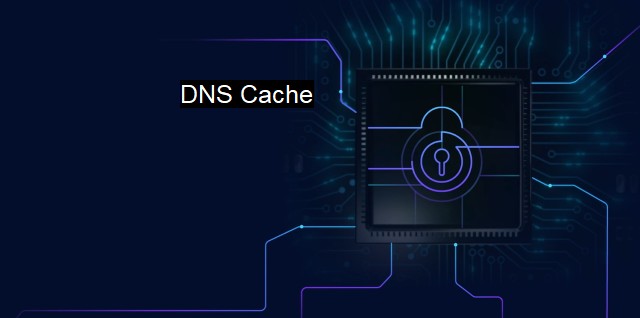What is DNS Cache?
DNS Cache: Understanding Its Advantages and Role in Strengthening Cybersecurity and Antivirus Protection
DNS Cache can be understood as a temporary storage of information by the DNS (Domain Name System) on a computer or server. The DNS is a hierarchical naming system that converts user-friendly domain names into IP addresses. Usually, this conversion process doesn't have to happen every time a user requests data from the web. Instead, devices, routers, and servers store this DNS query-answer information locally in what's referred to as a DNS Cache to speed up future similar requests.DNS caches are essential primarily because they help increase the speed of domain name resolution queries. Each time you type a specific URL into your browser, your computer doesn't need to research how the name translates to an IP address. The DNS cache already well-stores this translated information gleaned from initial conversions.
While such caching enhances performance and speed, it also opens up an avenue for cyber attacks and forms a critical point in the sphere of cybersecurity. Hackers have developed sophisticated strategies to exploit DNS caches for their malicious gains, leading to threats such as DNS cache poisoning, also known as DNS spoofing.
DNS cache poisoning, to briefly digress, involves the hacker inserting a fake address record in the DNS cache. Consequently, future requests using that corrupted record are directed not to the real destination but are diverted to malicious websites, potentially controlled by the hacker. The unsuspecting user would think they are visiting the legitimate website when, in fact, their sensitive information could be getting harvested once they input it.
Thus, various cybersecurity protocols have been developed to protect DNS cache against such exploitations. The use of DNSSEC (DNS Security Extensions) has been widely accepted as it provides a layer of verification for DNS responses, minimizing the chance for a cache poisoning attack. DNS servers that adhere to DNSSEC protocols are thus more secure.
Notably, antivirus software play a significant role in reducing DNS spoofing threats. They typically come with built-in web shields that analyze each website you visit, checking it against known threats and malicious activities. antivirus software is equipped to detect the presence of any harmful malware that works on compromising your DNS cache.
In addition to antivirus protections, practices like regularly flushing your DNS cache can mitigate risks associated with corrupt DNS records. Flushing DNS cache clears it out and replenishes it with the new DNS lookups. Most operating systems provide simple commands that allow users to perform these tasks, enhancing their cybersecurity defenses against DNS cache attacks.
Similarly, users are advised to use DNS services with a good reputation for a secure performance that adds an extra layer of security. These services protect users by blocking unsafe sites, preventing users from clicking on potentially dangerous sites or downloads, and offering real-time protection against phishing and other scam sites.
DNS cache is a critical part of performance in the computing world, helping to speed up DNS lookups by storing previously looked-up addresses. it can also be a critical vulnerability when it comes to cybersecurity. Yet, with the proper safeguards and practices such as using trusted DNS services, adopting technologies like DNSSEC, maintaining updated antivirus software, and regular flushing of the DNS cache, we can ensure that this necessary element does not become a susceptive path for malicious activity.

DNS Cache FAQs
What is DNS cache in cybersecurity?
DNS cache is a temporary storage of data that contains recently accessed domain names and their corresponding IP addresses. It helps to speed up the process of accessing frequently visited websites by avoiding the need to query the DNS server for every request.How can DNS cache be exploited by attackers for malicious purposes?
Attackers can exploit DNS cache by using cache poisoning techniques to redirect users to malicious websites or to intercept user traffic. This can lead to data theft, phishing attacks, and malware infections.How can antivirus software help protect against DNS cache attacks?
Antivirus software can help protect against DNS cache attacks by monitoring network traffic and detecting any suspicious DNS activity. It can also block access to known malicious websites and prevent unauthorized changes to the local DNS cache.What are some best practices for managing DNS cache to improve cybersecurity?
Some best practices for managing DNS cache include configuring DNS servers to limit the duration of cached data, regularly flushing the local DNS cache, and implementing DNSSEC to prevent DNS spoofing attacks. It is also important to keep software and security patches up to date to prevent known vulnerabilities from being exploited.| | A | | | B | | | C | | | D | | | E | | | F | | | G | | | H | | | I | | | J | | | K | | | L | | | M | |
| | N | | | O | | | P | | | Q | | | R | | | S | | | T | | | U | | | V | | | W | | | X | | | Y | | | Z | |
| | 1 | | | 2 | | | 3 | | | 4 | | | 7 | | | 8 | | |||||||